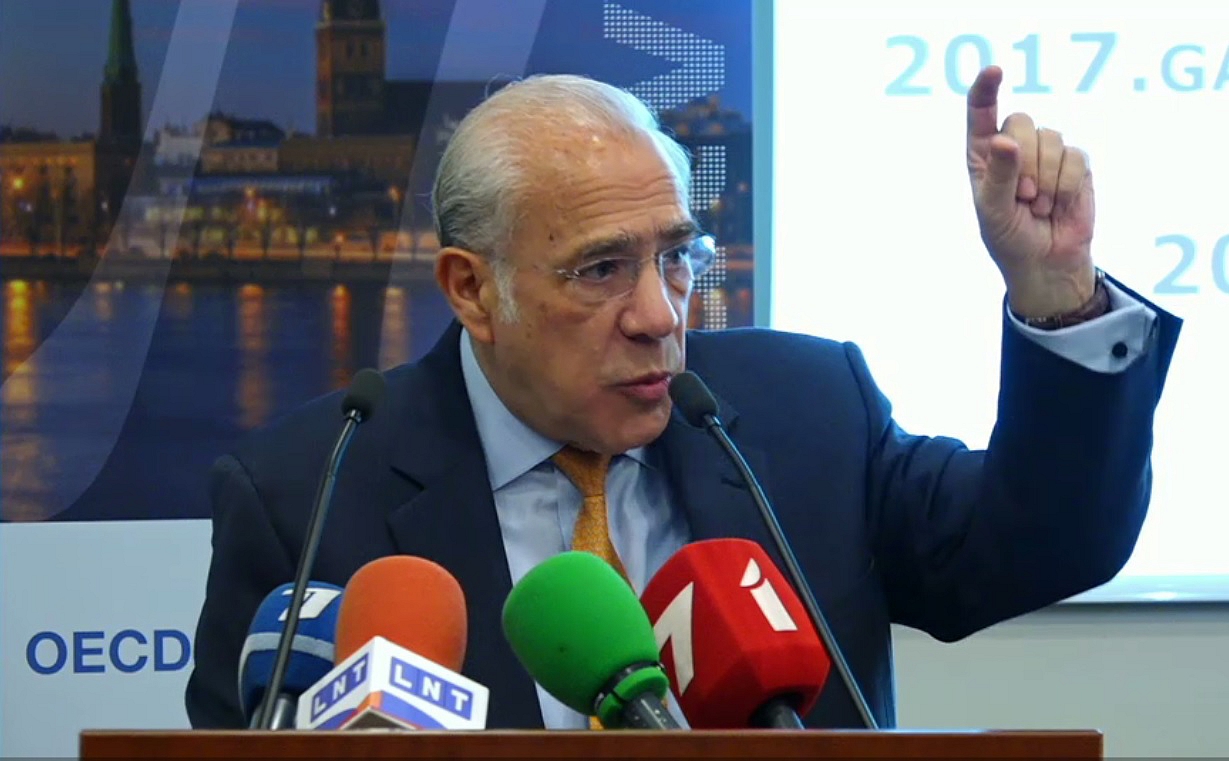The latest OECD Economic Survey of Latvia projects "robust growth of 2.7% in 2019 and 2020, even as world trade weakens and investment slows."
“Thanks to sound macroeconomic policies and strong reform efforts, Latvia has achieved impressive economic growth over recent years,” said OECD Secretary-General Angel Gurria, presenting the Survey alongside Latvian Minister of Economics Ralfs Nemiro and Minister for Environmental Protection and Regional Development Juris Pūce in Rīga May 29.
“Unemployment is falling, living standards and well-being are improving, and Latvia has decoupled economic growth from greenhouse gas emissions, through trail-breaking use of renewable energy. To build on this performance, it is critical that Latvia continues economic reforms that make growth more robust, inclusive and environmentally friendly,” Gurria said.
"Ongoing efforts to strengthen the capacity of the judiciary and law enforcement agencies are crucial to fight economic crimes and the large informal economy, which is holding back better access to credit, training and social protection," the OECD said.
#OECD Secretary-General @A_Gurria presents in Riga?? the Economic Survey and the Environmental Performance Review of Latvia ?https://t.co/mFXINtPzZR @EM_gov_lv @VARAM_Latvija @Arlietas pic.twitter.com/eGCZAujThh
— Latvia in OECD?? / Latvija OECD (@LatviaOECD) May 29, 2019
To improve well-being and reduce large regional inequalities, Latvia should ensure universal access to healthcare and affordability of housing. Planned territorial reforms that merge or better coordinate small municipalities will ensure better provision of public services, including public transport, waste management and water, according to the Survey.
Sustained economic growth is likely to drive up environmental pressures in Latvia, according to the first OECD Environmental Performance Review of Latvia.
Despite being "among the OECD’s leaders in renewable energy," more needs to be done to reduce air pollution, which still affects nearly 90% of the population, to improve recycling and energy efficiency in houses, and to move towards a low-carbon economy, the OECD says.
It also calls for increased investment in environment-related innovation, infrastructure and services like waste sorting and recycling, and protection of natural habitats and biodiversity. EU funds should be complemented with public and private investment.




























